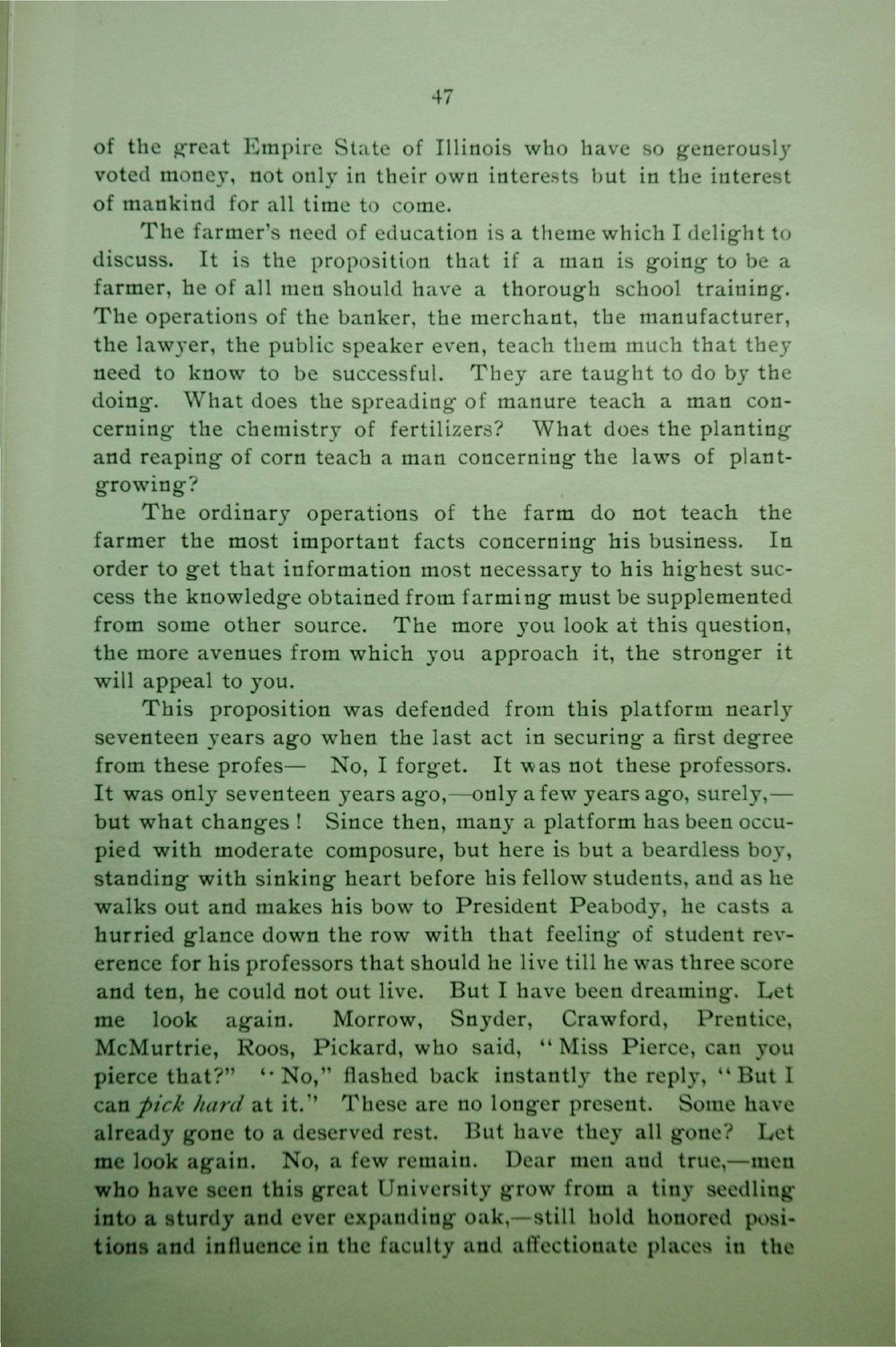| |
| |
Caption: Dedication - Ag Building
This is a reduced-resolution page image for fast online browsing.

EXTRACTED TEXT FROM PAGE:
47 of the great Empire State of Illinois who have so generously voted money, not only in their own interests but in the interest of mankind for all time to come. T h e farmer's need of education is a theme which I delight to discuss. It is the proposition that if a man is going to be a farmer, he of all men should have a thorough school training. T h e operations of the banker, the merchant, the manufacturer, the lawyer, the public speaker even, teach them much that they need to know to be successful. They are taught to do by the doing. What does the spreading of manure teach a man concerning the chemistry of fertilizers? What does the planting and reaping of corn teach a man concerning the laws of plantgrowing? T h e ordinary operations of the farm do not teach the farmer the most important facts concerning his business. In order to get t h a t information most necessary to his highest success the knowledge obtained from farming must be supplemented from some other source. T h e more you look at this question, the more avenues from which you approach it, the stronger it will appeal to you. T h i s proposition was defended from this platform nearly seventeen years ago when the last act in securing a first degree from these profes— No, I forget. It was not these professors. It was only seventeen years ago,—only a few years ago, surely,— but what changes 1 Since then, many a platform has been occupied with moderate composure, but here is but a beardless boy, standing with sinking heart before his fellow students, and as he walks out and makes his bow to President Peabody, he casts a hurried glance down the row with that feeling of student reverence for his professors that should he live till he was three score and ten, he could not out live. But I have been dreaming. Let me look again. Morrow, Snyder, Crawford, Prentice, McMurtrie, Roos, Pickard, who said, " Miss Pierce, can you pierce t h a t ? " 4 ' N o , " flashed back instantly the reply, " B u t I can pick hard at it." These are no longer present. Some have already gone to a deserved rest. But have they all gone? Let me look again. No, a few remain. Dear men and true,—men who have seen this great University grow from a tiny seedling into a sturdy and ever expanding oak,—still hold honored positions and influence in the faculty and affectionate places in the
| |